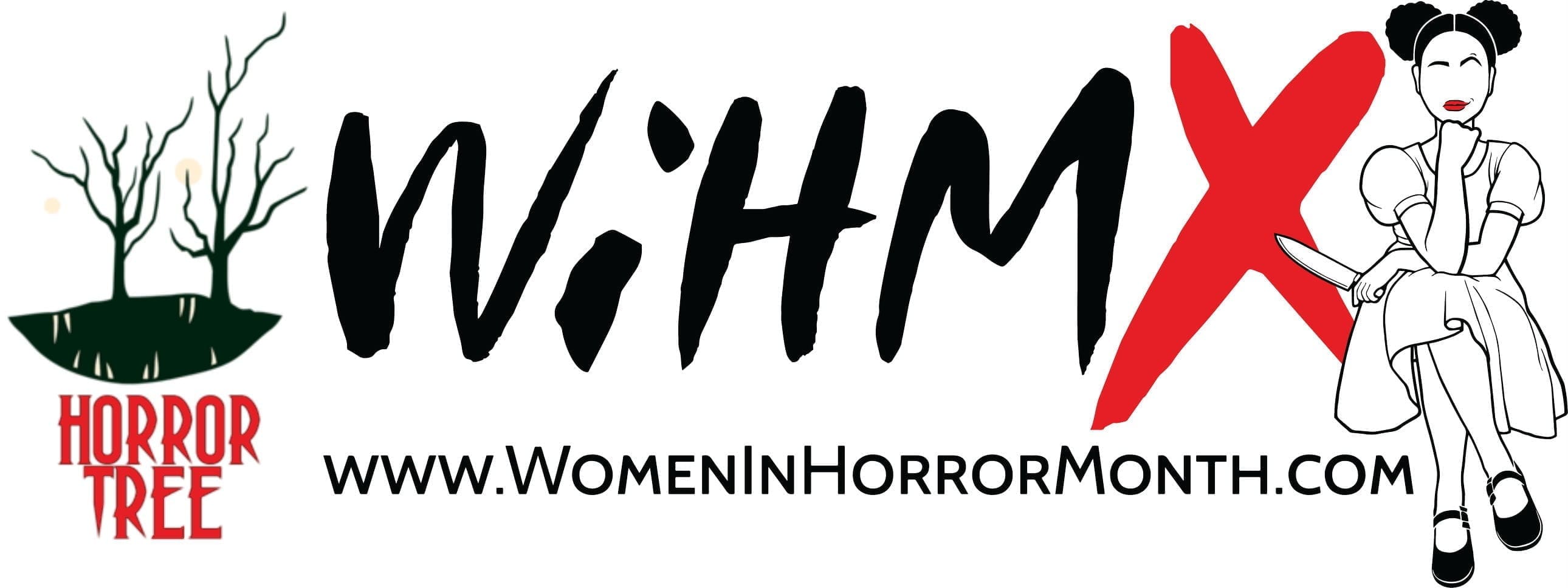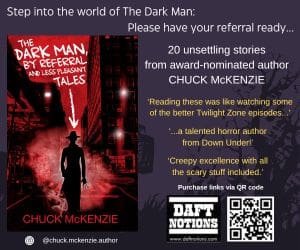WIHM: A World Without Horror

A World Without Horror
By: L. Bachman
Sit back, inhale with your nose, and exhale through your mouth. Now that you’re in a better more comfortable position I want you to do something for me. Imagine for a moment, if you will, a world without horror.
Now that you’re picturing it in your mind’s eye you’ve probably imagined a world without wars, starving children, or intolerance. You may have pictured an ideal location–a utopia if you will, of bliss and happiness. With skies above the shades of the palest of blues and the most romantic of pinks and purples. Clouds dotting along ignorant of anything other than peace and calm, even ignoring the blazing brilliance of a sun rising or perhaps setting depending on the mood upon which you’re imaging. Now that you have pictured this beautiful moment in time, you’re also picturing a world of unadulterated fantasy.
Horror is born of the darkness that rises after the sun sets. Life everlasting breathed into it from the chattering of teeth from your bedroom closet. Even that little repetitious tapping of the glass that wakes you from your slumber. It is the crossroads of our fears and the unknown. At that point we have unfiltered life experience and for the writer of horror, this prime location is the feeding ground for our darkest muse. The creature inhaling our primal gut reactions, perhaps from a long-forgotten ancestral reaction of warning or doom, and exhaling them into page upon page of thrills, chills, and tormented woe, but I ask you: why do we need to have horror in the world? Why can we not have peace?
The world is harsh and unrelenting, and we, the horror creators, reflect that. No matter if we write of its ghost stories or its murderers or create the fear in another arena, we are a reflection upon the world in which we live–the world you live. Horror is a necessary evil so that one may face their fears in the comfort and privacy of their home, in the safety of numbers at a cinema, or so we learn and grow from the things that scare us most in the world.
In several cultures and throughout history, it’s a rite of passage for a child to become an adult by facing their fears. If you can face the thing you fear most nothing can stop you, right? It could help put things in proportion, at least it’d make one think. Horror is a necessary evil. It helps us cope and helps us overcome. I speak from experience, let me share with you a story you may not know or may have heard since I have shared it before.
My younger life was abusive. I woke most days wondering what was going to happen to me, a reaction from years of abuse at the hands of a family member that overtime became a constant state of being, my ‘normal’. I won’t go into the details of my abuse here, just setting the stage for my point to be made. My youth was abusive and as I grew my abuse came and went whenever that family member was around. I shared my teen years with lots of memories, experience, and with moments of times that I genuinely thought I was going to die. With all that I have overcome surviving such an existence when I wrote in my younger years, I was coping with surroundings I felt utterly out of control of. I created worlds that I could control so writing for me became therapeutic, even if I didn’t have the wisdom and vocabulary at the time to explain this properly.
My writing style grew as anyone practicing a skill will grow. I began writing horror truly not realizing I was writing in horror. My logic was: This doesn’t scare me so it’s probably not scary, fantasy at most. It wasn’t until a published author and friend I had made looked over my work and said that it was horror that I even realized.
Now, for most, my life experiences could be considered horror. For me, I had dealt with it, overcoming it like so many that face horrors in their life. Now, do I credit my life for getting me into horror? No, but it has helped me face fears that I didn’t understand were fears. A life without horror, to a degree for me, would be a dreary one. I wouldn’t know how to react in many situations that may come and go in my life. I learned not to panic when the fires get bigger. I have learned that to breathe in the method I asked you to do at the beginning, it’s a meditative method I picked up to calm my heart rate and to realign myself when need be, and to calm.
So, in the month, that we in the literature recognize so many that contribute to horror in all the branches from the tree, I enjoy it because I recognize that a world, for me, without horror would’ve made me less of a person. It has taken me to some scary places, but it has also given me the candlelight in the dark so it’s not so bad after all.
L Bachman
At a young age, L. Bachman started creating stories and art. This form of expression led to becoming a published author with the stories Maxwell Demon, Human Ouija, and Harvest. She has also been included in several anthologies. In March 2016, her short story, The Painting of Martel, was included in the anthology Painted Mayhem. Following its release, she was once more included in an anthology, And the World Will Burn: A Dystopian Anthology, with her work The Gaze of Destruction. She will once again be included in a December 2016 anthology called Crossroads in the Dark II: Urban Legends with a short story, A Farmhouse Haunting.
Bachman first gained attention in the independent publishing community with her cover design of the collection entitled Murder, Mayhem, Monsters, and Mistletoe: An Anthology. This led to her working with several authors, including Lindy Spencer and Rae Ford. Following her work on the anthology, she wrote The Blasphemer Series: Maxwell Demon in January 2015. It was nominated for Indie Book of 2016 by Metamorph Publishing, along with her bestselling short Human Ouija.
Her graphic arts provided the beginnings of her portfolio. Testimonials of her clients can be seen on her graphic design website, Bachman Designs. When she is not working in the graphics arts sector of the independent publishing industry, she works for the publishing house Burning Willow Press, LLC. They took notice of her portfolio after she provided a graphic design for author Kindra Sowder, CEO of Burning Willow Press. L. Bachman now is a full-time staff member working in the graphics department of the publishing house doing promotional media… videos, promotional materials, and cover design. Through her work with Burning Willow Press, she’s provided materials for the likes of Kerry Alan Denny, SL Perrine, Jay Michael Wright II, and James Master. She continues to work independently for her own clients, having plans to continue her independent writing.
After the passing of her father in April 2016, she dedicated The Blasphemer Series: Harvest to him, dubbing him one of her biggest supporters, if not her biggest fan. In honor of him, she continues to do charitable work and supports active duty military personnel. Her submission to the anthology Painted Mayhem raised money for military personnel suffering and living with PTSD. This also led to her donating some of her work to “Authors Supporting Our Troops”, an event held by author ArmandRosamilia that sends copies of books to active duty military.
Between her publishing and her graphic arts work, she has been a featured guest for many book releases held by other authors, interviewed multiple times by blogs, featured on many podcasts, such as “Unfleshed” with TJ Weeks in September 2015, and has been a returning guest on “Armcast” with Armand Rosamilia and “The Darkness Dwells”, just to name a few.
She continues to write from her home in Northern Alabama where she lives with her husband, the poet and writer DS Roland, their son, Damien, and one very judgmental rescued elderly cat named Mouse. Bachman continues to educate authors interested in improving their writing and marketing skills, as well as holding onto her mission of empowerment, inspiration, and aid to young writers.
Website: www.lbachman.com
- About the Author
- Latest Posts
The Horror Tree is a resource for horror authors which was created in 2011. The main goal when starting the site was to include all of the latest horror anthologies and publishers that are taking paying submissions. A resource useful for both new and experienced publishers alike looking for an outlet for their written material!










